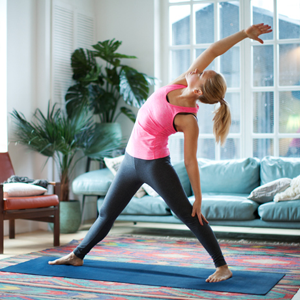
Yeah, you know that exercise can upgrade every aspect of your health. A major worldwide Lancet study estimated that physical inactivity is responsible for 6% of coronary heart disease, 15% of breast cancer and 10% of colon cancer.
On the flip side, 150 minutes of physical activity per week can extend your life by as much as five years, a study in the American Journal of Preventive Medicine shows.
Adjust your workouts over the years to give your body what it needs. Here’s how…
In your 20s
Your bones: Bone mass in your hips and spine peaks in your mid to late 20s, says Peter Woodgate, an exercise physiologist. Build bone now and you will have some to spare later, lowering your chances of osteoporosis. The best bone-building moves, Woodgate says, are moves that force you to bend at more than one joint: Add squats, lunges, rows and presses to your routine.
Read more: 9 tips for when you’re walking for weight loss
Your spine: Slumping over your keyboard might impress your boss, but it compresses your back. “When the spine is held in the same posture for years, muscles can become too deconditioned to move the bones, so they fuse together,” says Lori Incledon, author of Strength Training for Women.
Reverse the effects by getting yourself a foam roller and doing the foam roller snow angel daily, aka working a one-metre roller down your spine, moving your arms slowly in a circular motion. And repeat.
In your 30s
Your stamina: This is no decade to be lazy, it’s time to put your lungs and heart to work for future pay-off. Try this workout: Warm up with a five-minute walk. Sprint for 30 seconds. Walk or jog lightly for up to 90 seconds. Repeat 10 times.
Read more: 15 gifts under R500 that every fit girl wants this holiday season
Your motivation: When researchers at Toronto General Hospital in Canada asked women in their 30s why they didn’t exercise, 40% said they didn’t have time and 40% said they didn’t have the will power. Strap on an activity tracker and watch your incidental exercise step up. It doesn’t have to be a crazy-expensive one either – start off with a simple fitness tracker.
A recent study published in PLOS One shows a sedentary person who increases her steps from 1 000 a day to 10 000 a day has a 46% lower mortality risk. Coming up short? Make small, doable changes, like carrying in one grocery bag at a time from the car.
In your 40s
Your muscles: After 45, most women who don’t lift weights start losing muscle, mostly from the lower body. Less junk in the trunk may sound good, but decreased muscle mass leads to a slower metabolism. Keep power levels high with jump squats. Do three to four sets of six reps, resting one minute in between sets.
Read more: This is the best alternative to a personal trainer – and it’s way cheaper
Your waistline: Your metabolism is starting to put on the brakes as a result of dwindling muscle mass, so continue hitting the treadmill. That way you don’t have to worry about curbing your gelato habit.
Yoga helps too, says Dr Alan Kristal, from the Fred Hutchinson Cancer Research Center in the US. Dr Kristal recommends swapping out one cardio day a week for a yoga class. Gift yourself with a yoga mat to take your exercise up a notch in 2019. “It trains you to be mindful.” Magic.
This article was originally published on www.womenshealthsa.co.za
Image credit: iStock




 Publications
Publications
 Partners
Partners














